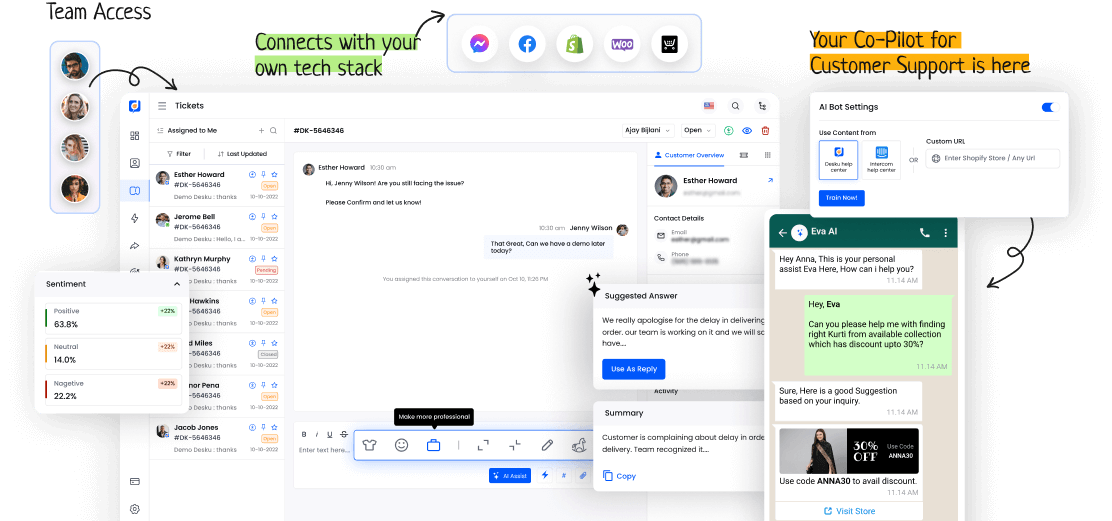In the quick-moving world of customer service, companies depend on many tools. These tools help navigate the challenges of addressing customer inquiries and worries. Be it the use of AI-driven chatbots for immediate responses, or advanced ticketing systems to smooth support processes, the customer service tools landscape is always evolving.
These tools aim not just to resolve issues swiftly, but to create frictionless customer experiences that leave a lasting mark. But how exactly do these tools change customer interactions? How do they shape the way companies connect with their clientele? Let's delve into this fascinating aspect of modern customer service operations.
I. Understanding Customer Service Tools
Ever thought about the crucial customer service tools for top-notch support? Customer satisfaction rules in service delivery. Good communication is key for quick and effective customer needs response.
Use tools like live chat or ticketing systems to make communication smooth. This boosts service quality and helps forge long-term relationships with clients.
II. Importance and Benefits of Service Tools
Using the right service tools is vital for top-notch customer service. They boost efficiency and customer happiness. These tools have many benefits.
They make processes simpler, improve communication, and tailor interactions. Businesses can understand customer needs better by using service tools. They can solve problems quickly. This raises customer satisfaction, loyalty, and retention rates.
III. Types and Examples of Customer Service Tools
Crucial to delivering top-notch customer service is the use of diverse customer service tools. These tools boost efficiency and satisfaction.
For instance, chatbot integration provides swift responses to common questions. Also, monitoring social media helps businesses handle customer issues and feedback immediately.
With these tools, businesses can enhance their service and foster better relationships with customers.









